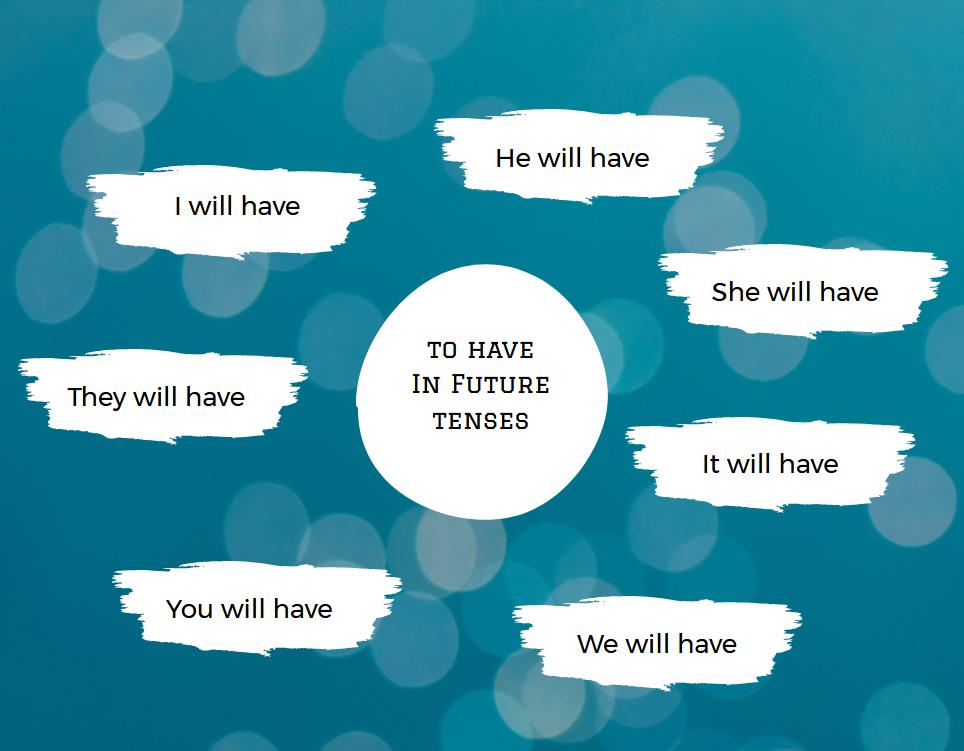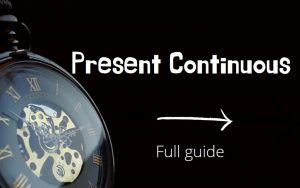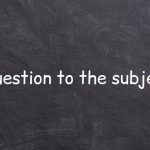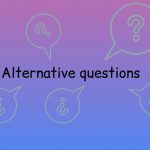The Future Perfect is the simplest tens of the Perfect group. Especially if you already understand the Present Perfect and the Past Perfect.
Remember to read How to learn English with audiobooks for FREE
We use the tenses of the Perfect group to indicate that some event or action happened before some other event or action.
The Future Perfect plays a similar role, but when we talk about the future. We use the Future Perfect for those events or actions that have not yet happened.
What is Future Perfect tense?
We use the Future Perfect to show that something will happen before a specified moment in the future.
John will have the job done by Tuesday.
This event will take place in the future. Why don’t we use the Future Simple to describe this event?
Because we want to show not that this event will happen in the future, we want to show that this event will be completed by a specified moment in the future.
We show that John will HAVE finished work before Tuesday arrives.
If we want simply to show that something will happen in the future, we can use Future Simple.
John will work.
We use the Future Perfect to emphasize that something will be COMPLETED at a certain point in the FUTURE.
We can indicate not just a point in the future, but some other moment in the future, before which another action will already be completed.
By the time John arrives, his son will have graduated from school.
The first part of the sentence is the Present Simple. The first part of the sentence indicates a point in the future. And the second part of the sentence is what will have been happened before that moment.
If we write two sentences in the Future Simple, we’ll just emphasize that two things will happen:
John will arrive. John’s son will graduate from school.
If we want to emphasize that John’s son will graduate from school before John arrives, we use the Future Perfect.
The Future Perfect shows an action that:
WILL ALREADY BE COMPLETED IN THE FUTURE.
When John arrives, John’s son will have already graduated from school.
IMPORTANT RULE: the Future Perfect does not show the action that will occur in the future. The Future Perfect shows an action that will ALREADY happen in the future.
- The Future Simple shows an action that will take place in the future.
- The Future Continuous shows an action that will be in progress in the future.
- The Future Perfect shows an action that will be finished before some other moment in the future.
- The Future Simple: Next year I will go to school.
- The Future Continuous: Next year I will be attending a new school.
- The Future Perfect: Next year I will have graduated from school.

How to form sentences
In order to form a sentence in the Future Perfect, we need need to follow two simple rules:
- The future form of the verb to have. In the Future tenses, the verb to have turned into will have. Will have is used regardless of who is the subject (with all persons).
- I will have
- He will have
- She will have
- It will have
- We will have
- They will have
- You will have
`
Be careful, we don’t change have even when used with he / she / it.
Correct: He will have.
Incorrect: He will has.
Correct: She will have.
Incorrect: She will has.
IMPORTANT RULE: Remember that will indicates that this is a future. Therefore, we must not forget about will.

- The second important rule of forming the Future Perfect is the third form of the verb. The third form of the verb indicates that the action described by the verb has already been completed.
Regular verbs form the third form by simply adding the -ed ending.
| base form | verb + ed |
|---|---|
| work | worked |
| walk | walked |
| play | played |
- work – worked
- walk – walked
- play – played
Irregular verbs form the third form according to their own rules.
| base form | 3d form |
|---|---|
| write | written |
| speak | spoken |
| do | done |
| have | had |
- write – written
- speak – spoken
- do – done
- have – had
You must learn the third form of irregular verbs.
Thus, will have + the third form of the verb are the main components for the Future Perfect.
I will have written my book by the next year.
I will not have written my book by the next year.
Will I have written my book by the next year?
How to form Affirmative (Positive) Sentences in Future Perfect
To form an affirmative (positive) sentence in the Future Perfect, we use the following rule: We put the subject first. After the subject, we put the future form of the verb to have – will have. Then we put the third form of the main verb. Then we can add the rest of the sentence if required.
Subject (I, you, they, people, boy, dog) + will have + third form of the main verb (read, done, seen) + rest of the sentence.
He will have done his homework by tomorrow.
How to form Interrogative (Question) Sentences in Future Perfect
To ask a question, we put will first. After will, we put the subject. Then have. Then we put the third form of the main verb. We can then add the rest of the sentence if required.
Please note that in order to ask a question in the Future Perfect, we put will not will have at the beginning of the sentence.
Correct: Will you have finished school by the time I return from Berlin?
Incorrect: Will have you finished school by the time I return from Berlin?
Will + Subject (I, you, they, people, boy, dog) + have + the third form of the main verb (read, done, seen) + the rest of the sentence.
Will you have published the book next year?
Will we have done the project by next month?
Special or Wh-Questions
A Wh-Question is a question we ask for more information. We ask such questions using additional words or phrases, for example: When, Where, How often, Why, At what time, etc.
To ask a Wh-Question in the Future Perfect, we put an additional word or phrase first. Then we use the same word order as in a general question.
Question word or phrase + will + Subject (I, you, they, people, boy, dog) + have + third form of the main verb (Read, Done, Seen) + rest of the sentence.
Why will you have published the book next year?
How will we have done the project by next month?
How to answer questions correctly
To form a short answer in the Future Perfect, we start with an affirmative (positive) or negative word YES or NO, then we add the subject and will (not).
Question: Will he have written the funniest joke by tomorrow?
Answer: Yes, he will.
Answer: No, he will not.
To form a full answer, we add to this construction the main part of the question in the affirmative (positive) or negative:
Question: Will he have written the funniest joke by tomorrow?
Answer: Yes he will have written the funniest joke (by tomorrow).
Answer: No he will not have written the funniest joke (by tomorrow).
How to form Negative Sentences in Future Perfect
We form a negative sentence in the same way as an affirmative (positive) sentence. Only we add the negative not which shows that the sentence is negative.
We use this rule: We put the subject first. After the subject, we put the future form of the verb to have + negative not – will not have. Then we put the third form of the main verb. After that, we can add the rest of the sentence if needed.
Remember, we put not after will. Not after the have! Do not forget this rule, because it is will that is the auxiliary verb that indicates the future. Accordingly, when we want to show that something will not happen in the future, we put not after will.
Correct: You will not have done this.
Incorrect: You will have not done this.
Subject (I, you, they, people, boy, dog) + will have + not + the third form of the main verb (Read, Done, Seen) + the rest of the sentence.
I will not have done this by next year!
I will not have finished cleaning the apartment by the time you arrive.
What is the short form of will have?
We use the following contracted forms in the Future Perfect:
- We contract Subject + will have in the affirmative (positive) as follows:
| Full | Short |
|---|---|
| I will have | I’ll have |
| He will have | He’ll have |
| She will have | She’ll have |
| It will have | It’ll have |
| We will have | We’ll have |
| They will have | They’ll have |
| You will have | You’ll have |
- I will have – I’ll have
- He will have – He’ll have
- She will have – She’ll have
- It will have – It’ll have
- We will have – We’ll have
- They will have – They’ll have
- You will have – You’ll have
- We contract the subject + will not have in a negative sentence like this:
| Full | Short |
|---|---|
| I will not have | I won’t have |
| He will not have | He won’t have |
| She will not have | She won’t have |
| It will not have | It won’t have |
| We will not have | We won’t have |
| They will not have | They won’t have |
| You will not have | You won’t have |
- I will not have – I won’t have
- He will not have – He won’t have
- She will not have – She won’t have
- It will not have – It won’t have
- We will not have – We won’t have
- They will not have – They won’t have
- You will not have – You won’t have
Do we use shall?
In old English grammar textbooks, you may come across the auxiliary verb shall.
Previously, we used shall to form the future tense with the pronouns I and We.
- I shall
- He will
- She will
- It will
- We shall
- They will
- You will
I shall miss you when you return to England
I will miss you when you return to England.
But today, shall is rarely used. Almost no one uses shall. Shall can be found in documents, books, or historical films.
You can use will with all Subjects (Persons) these days.
- I will have
- He will have
- She Will have
- It will have
- We will have
- They will have
- You will have
When we should use Future Perfect
Take a look at the Future Perfect use cases.
- We use the Future Perfect to express that some event or action will be completed at some point in the future.
We can indicate this moment using a date, another event, or context.
By the time you come, I will have finished cleaning the apartment.
I will have done the job by the end of next year.
- We use the Future Perfect to express the likelihood of events that happened in the PAST.
Yes, we can use the Future Perfect when we are not talking about the future but about the past! When we talk about the likelihood of events that happened in the past and ended by the present moment (by the moment of speaking).
You will have noticed certain changes here at school.
Someone will have seen them leaving the city.
Complex Sentences
We can form complex sentences using the Future Perfect and the Present Simple. Such sentences are completely related to the future, despite the fact that they may contain a part written in the Present.
We form such complex sentences using:
The first part of the sentence: the Future Perfect.
The second part of the sentence: Present Simple.
He will have known the whole truth when he comes home.
Please note: If the second part of the sentence (Present) contains the pronoun he / she / it, then we add -s (or -es) to the main verb.
He will have known the whole truth when he comes home.
By, Until and Till
When using the Future Perfect, we often use by, until, and till.
By, until, and till mean that something will happen or complete by some time, moment, or action.
I will have done some good things by next year.
I will have done some good things till next year.
I will have done some good things until next year.
IMPORTANT: Remember that after the words by, until, till, when, by the time, we use the Present Simple.
I will have finished all preparations by the time you arrive.
I will have finished all preparations until you arrive.
I will have finished all preparations till you arrive.
I will have finished all preparations when you arrive.
We use Present after words by, until, till, when, by the time, even though we are talking about the future.
Future Perfect Passive
We can use the Future Perfect in:
- Active voice
- Passive voice
We use the active voice to indicate that the subject is performing an action:
When mom comes back I will have done my homework.
We use the Passive voice when the subject in a sentence (someone or something) does not do the action but experiences the action on itself.
When mom comes back my homework will have been done.
We use the passive voice when it is important to show the result of the action and not the one who is performing the action. Because we don’t care or we don’t know who is performing the action. It doesn’t matter to us or we don’t know who is the subject of the sentence.
We form the passive voice in the Future Perfect using the word been. We put the word been after will have. It looks like will have been.
Subject (I, you, they, people, boy, dog) + will have been + the third form of the main verb (Read, Done, Seen) + the rest of the sentence, if necessary.
By the next year, all houses will have been destroyed.
What is the difference between Future Perfect and Future Simple?
This is a good question!
English learners often don’t know when to use the Future Perfect or the Future Simple.
We use both the Future Perfect and the Future Simple when we want to talk about the future. But there is the difference:
We use the Future Simple when we want to say that some simple action will happen in the future. We do not focus on how long this action will last, whether it will last at all and whether this action will be completed. We use the Future Simple to show the fact that something will happen in the future.
I will go to a new school.
We use the Future Perfect to say about an action or event that will be completed at some point in the future. The most important thing is that the action will already be completed. We use the Future Simple to emphasize the result, the completeness, not the action.
I will have finished school next year.
What is the difference between Future Perfect and Future Continuous?
Sometimes English learners confuse Future Continuous and the Future Perfect. Let’s look at the cases when we use them to understand the difference between these two tenses.
The Future Perfect expresses that some action will be completed until a certain point in the future.
The Future Continuous tells us that action will last (will be in process) at a certain point in the future.
The Future Continuous expresses an action that begins in the future and then lasts for some time in the future.
The Future Perfect expresses an action when it doesn’t matter when it started or how long it lasted. The important thing is that the action will ALREADY be completed until some point in the future.
They will have done the book.
Еhe Future Perfect and the Future Continuous focus on different details.
They will have written the book.
They will be working on the book.
Let’s compare two sentences:
On July 22, Jack will be driving home.
We are using the Future Continuous in this example. We focus on the action that will take place at a certain point in the future. And we can see that in the future, on July 22, Jack will be sitting in the car, he will be driving home.
Jack will have arrived home by July 22nd.
We are using the Future Perfect. We emphasize that the action will have been completed by a certain point in the future. This means that on July 22, Jack will be at home. He will not be sitting in the car driving home. He will already be at home.
Pay attention to driving and arrived.
On July 22, Jack will be driving home.
Jack will have arrived home by July 22nd.
One word has the -ing ending and expresses progress. This is an Action verb. Together with the will, the Action verb forms the Future Continuous.
The second word has the completed (the third) form of the word ARRIVE. The completed form of the verb, together with will have, forms the Future Perfect.
Additional Rules
Remember a few important rules that English learners often forget.
- When we use have with will in the future, we do not change have to has in the third-person singular.
- We form negation in the Future Perfect by using will not have. We don’t say will have not.
- We always use the Present Simple after the conjunctions when, before, till. Even though we are talking about the future.
What are the Markers of Future Perfect?
When using the Future Perfect, we often use words that indicate by what time the action will take place:
- before
- when
- till
- until
- by …
- by the end of …
- by tomorrow
- by the time …
- by then
- by next week
- by next month
- by next year
- by 10 pm

We may not use time markers if such a moment is clear from the context.
Will you be working on this project next year? (context)
No, I will have already finished the work on the project.
What are Examples of Future Perfect?
These examples will help you understand the lesson better:
If I succeed, I will have done some good things in my life.
He will have done his homework by tomorrow.
Well, by that time, the bacteria will have done its work.
By doing so, you will have made me extremely happy.
If you listen to him he will have said everything.
I will have finished the work by this evening.
After today, you will have broken every existing speed record.
You will not have seen something like this again.
I will have finished this task by next Friday.
I will have broken her heart.
Hello! If you would like to thank me for the articles I wrote, you can click Buy me a coffee. Thank you! ❤❤❤










